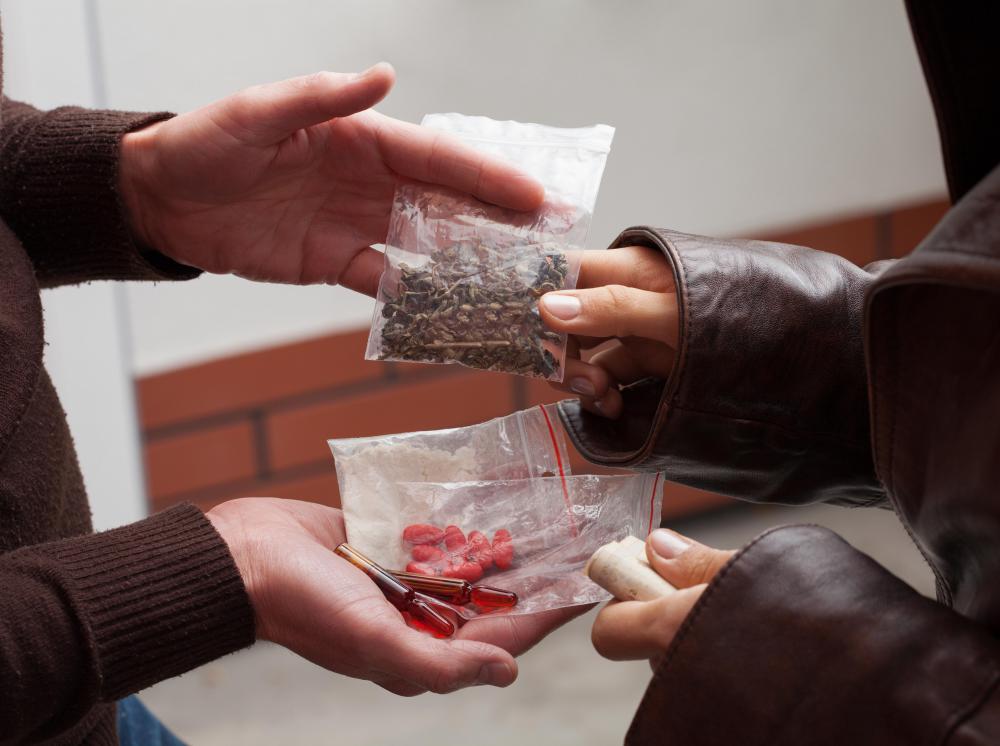At WiseGEEK, we're committed to delivering accurate, trustworthy information. Our expert-authored content is rigorously fact-checked and sourced from credible authorities. Discover how we uphold the highest standards in providing you with reliable knowledge.
What is a Drug Policy?
Every nation around the world has its own drug policy — from those taking a hard line stance to punish buyers and sellers all the way to those who ignore cultivation of illicit substances completely. Drug policy is generally designed to manipulate the supply and demand for illicit drugs within a country. Governments institute criminal penalties for users to cut back on demand as well as taking measures to prevent the substances from entering the hands of sellers to reduce supply. Typical examples of drug policy are prohibition, decriminalization, and legalization.
Prohibition is a popular drug policy in developed nations that institutes criminal penalties on users, sellers, or both. Such criminal penalties are intended to reduce demand through increasing fear of getting arrested for drug possession in potential users. It can also have the intended effect of reducing supply by instituting harsh criminal penalties on sellers, making selling illicit substances a less attractive occupation. People who support prohibitive drug policy feel that it sends a message from the government that the use of illicit substances should not be condoned in society. However, critics point out that the practical effect is the creation of a black market for the substances, resulting in more violence than would otherwise occur.

On the other side of the fence from prohibitive drug policy is legalization. Proponents of full legalization of illicit substances argue that criminal penalties do little to reduce the demand or supply of drugs, and do nothing but make the sale of illicit substances profitable through organized crime. The argument for legalization as a drug policy is that the government can regulate the purchase of such drugs and tax them in the same manner that alcohol and nicotine are regulated in developed nations. Critics of this approach argue that it would make the substances more accessible to vulnerable people such as children.

In between these extremes, there are various drug policy measures that governments may take in order to control the supply and demand of drugs. The concept of decriminalization, which would eliminate criminal penalties for possession yet the drug would remain illegal, is very popular in many circles. Coupled with the concept of decriminalization is often the idea to practically treat drug problems like a medical issue and working with addicts to help them eliminate their habit rather than putting them away in jail. Governments often employ many other measures designed to mitigate the effects of drug use such as the needle exchange program, which provides clean needles to addicts and reduces the spread of drug-related disease.
AS FEATURED ON:
AS FEATURED ON:












Discuss this Article
Post your comments